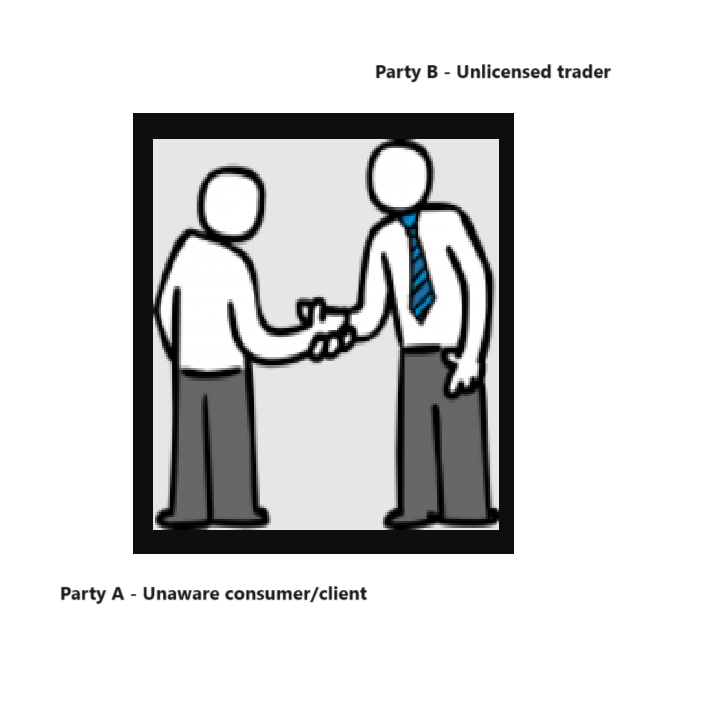Archbolds (Freightage) Ltd v Spanglett Ltd [1961] 1 QB 374
Citation:Archbolds (Freightage) Ltd v Spanglett Ltd [1961] 1 QB 374
Rule of thumb:What happens if a party A enters into a contract with party B, unaware that arty B do not have license to carry out the activities they are proposing? Party A can still rely on the terms of the contract, and party B cannot rely on any of the terms from it, particularly where it would not be possible for party A to check whether party B was licensed.
Judgment:
The basic facts of this case were that Archbold’s contracted Spanglett to deliver whiskey for them. Spanglett lost the whiskey in transit due to their negligence and Archbold sued them for cost of the lost whiskey. Spanglett argued that they did not have a license to drive vehicle and that the contract was therefore an illegal contract which was not enforceable. The Court held that where one party is not aware of the illegality of the other party then the contract can still be enforced by them – it is only the party who carries out the illegality who cannot enforce it, ‘The effect of illegality on a contract may be threefold. If at the time of making the contract there is an intent to perform it in an unlawful way, the contract, although it remains alive, is enforceable at the suit of the party having that intent; if the intent is held in common, it is not enforceable at all. Another effect of illegality is to prevent a plaintiff from recovering under a contract if in order to prove his rights under it he has to rely on his own illegal act; he may not do that even though he can show that at the time of making the contract he had no intent to break the law and that at the time of performance he did not know that what he was doing was illegal. The third effect of illegality is to avoid the contract ab initio, and that arises if the making of the contract is expressly or impliedly prohibited by statute or is otherwise contrary to public policy.’ Devlin LJ

Warning: This is not professional legal advice. This is not professional legal education advice. Please obtain professional guidance before embarking on any legal course of action. This is just an interpretation of a Judgment by persons of legal insight & varying levels of legal specialism, experience & expertise. Please read the Judgment yourself and form your own interpretation of it with professional assistance.

